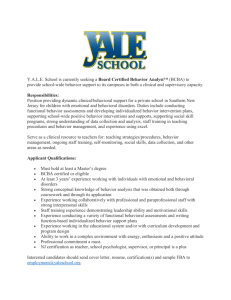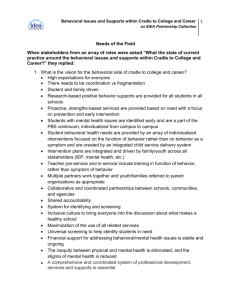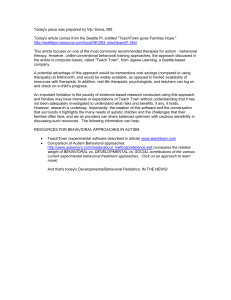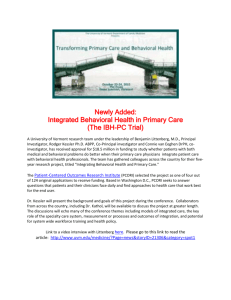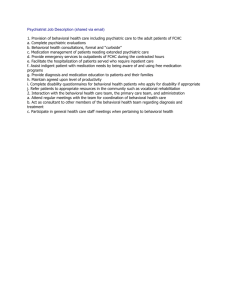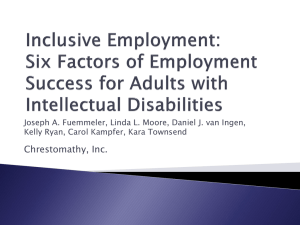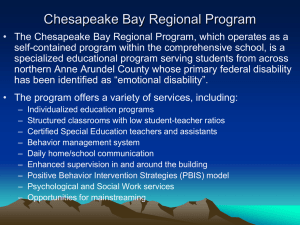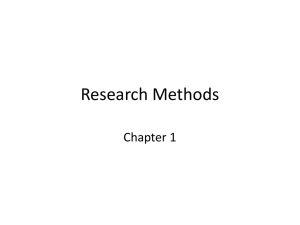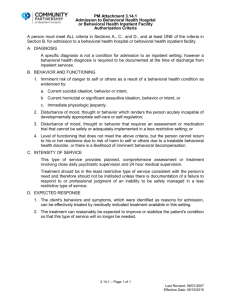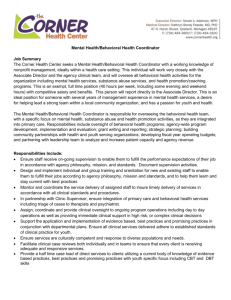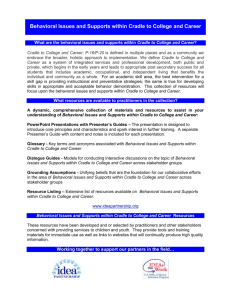Grounding Assumptions
advertisement
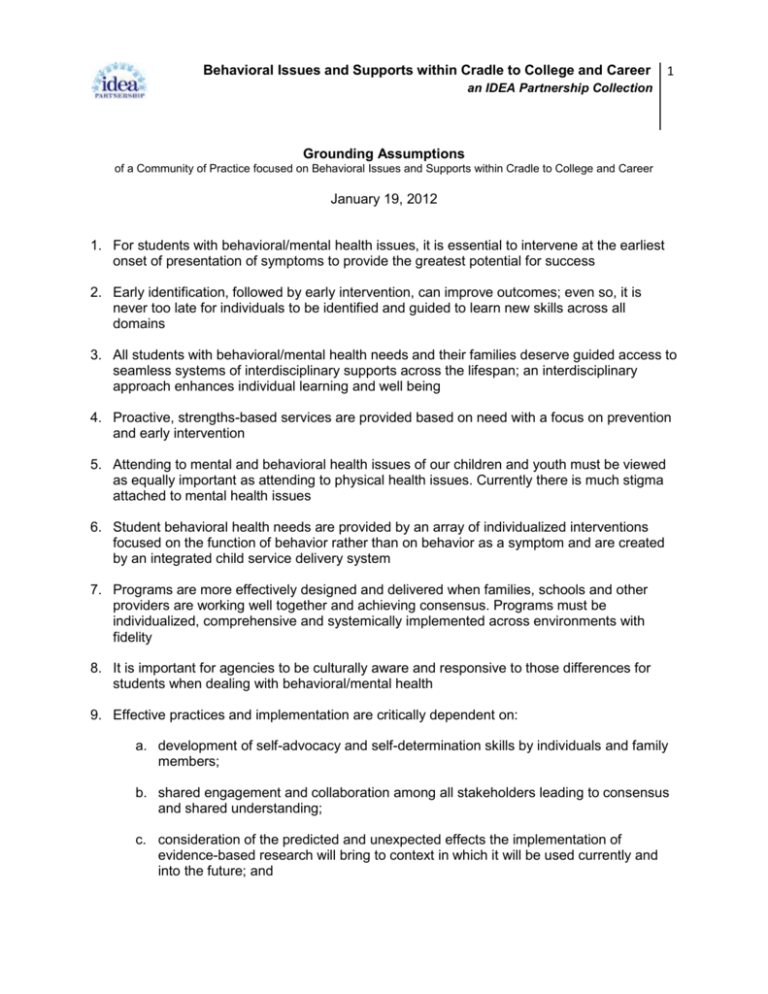
Behavioral Issues and Supports within Cradle to College and Career 1 an IDEA Partnership Collection Grounding Assumptions of a Community of Practice focused on Behavioral Issues and Supports within Cradle to College and Career January 19, 2012 1. For students with behavioral/mental health issues, it is essential to intervene at the earliest onset of presentation of symptoms to provide the greatest potential for success 2. Early identification, followed by early intervention, can improve outcomes; even so, it is never too late for individuals to be identified and guided to learn new skills across all domains 3. All students with behavioral/mental health needs and their families deserve guided access to seamless systems of interdisciplinary supports across the lifespan; an interdisciplinary approach enhances individual learning and well being 4. Proactive, strengths-based services are provided based on need with a focus on prevention and early intervention 5. Attending to mental and behavioral health issues of our children and youth must be viewed as equally important as attending to physical health issues. Currently there is much stigma attached to mental health issues 6. Student behavioral health needs are provided by an array of individualized interventions focused on the function of behavior rather than on behavior as a symptom and are created by an integrated child service delivery system 7. Programs are more effectively designed and delivered when families, schools and other providers are working well together and achieving consensus. Programs must be individualized, comprehensive and systemically implemented across environments with fidelity 8. It is important for agencies to be culturally aware and responsive to those differences for students when dealing with behavioral/mental health 9. Effective practices and implementation are critically dependent on: a. development of self-advocacy and self-determination skills by individuals and family members; b. shared engagement and collaboration among all stakeholders leading to consensus and shared understanding; c. consideration of the predicted and unexpected effects the implementation of evidence-based research will bring to context in which it will be used currently and into the future; and Behavioral Issues and Supports within Cradle to College and Career 2 an IDEA Partnership Collection d. understanding and acceptance by all stakeholders of their roles and responsibilities in serving all learners 10. Educate individuals with behavioral/mental health needs to develop individual talents, personal independence, social responsibility, and emotional well-being 11. A comprehensive and coordinated system of professional development, services and supports is essential. Professional development must incorporate principles of effective adult learning styles and incorporate universal design for learning This document was generated within the IDEA Partnership by cross-stakeholders representing teachers, administrators, related service personnel, family members and youth, state education agencies, higher education, and technical assistance providers.
